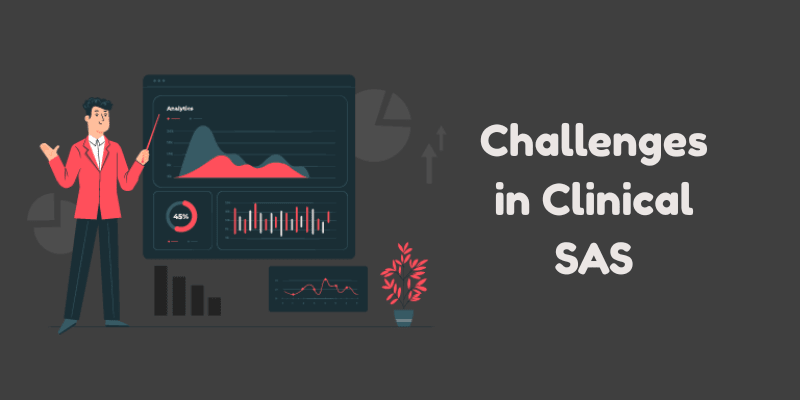
Clinical SAS programming plays a crucial role in modern clinical research, enabling the accurate analysis and reporting of patient data with compliance and reliability. As the medicine and healthcare industries continue to grow, the demand for Clinical SAS programmers has also seen a significant rise. Enroll in our Clinical SAS Training in Chennai to strengthen your data handling skills, work on real-world projects, and get expert career support to thrive in the industry.
1. Strict Regulatory Compliance
One of the most significant challenges in Clinical SAS programming is adhering to stringent regulatory standards. Clinical trials are governed by agencies such as the U.S. Food and Drug Administration (FDA) and the European Medicines Agency (EMA), which require precise data handling and reporting.
Programmers must adhere to CDISC standards, such as the Study Data Tabulation Model (SDTM) and Analysis Data Model (ADaM). Ensuring data sets are compliant with these formats is not only time-consuming but also requires in-depth domain knowledge and meticulous attention to detail.
FITA Academy offers comprehensive SAS Training in Chennai to enhance your data analysis skills and career opportunities.
2. High Responsibility for Data Accuracy
In the healthcare sector, data accuracy has a direct effective on patient safety and treatment outcomes. Clinical SAS programmers handle vast amounts of data from trials, and even a minor error in code or logic could result in incorrect conclusions or rejected submissions.
This level of responsibility requires constant vigilance, thorough validation checks, and peer reviews. Unlike many other programming jobs, the margin for error in Clinical SAS is exceptionally low.
3. Complex and Large Datasets
Clinical trials often generate massive amounts of structured and unstructured data from multiple sources, including electronic data capture (EDC) systems, laboratories, and patient diaries. Working with such complex data requires advanced SAS programming skills and the ability to manage and transform datasets efficiently.
Moreover, merging, cleaning, and analysing this data in compliance with industry standards is a demanding process that requires precision and time. Enroll in our SQL Course in Chennai to gain the skills needed for efficient data handling and analysis.
4. Understanding Medical Terminologies and Trial Design
A Clinical SAS programmer is expected to understand not only programming logic but also clinical trial protocols, medical terminologies, and statistical concepts. This dual requirement often presents a hurdle for those new to the domain or coming from a purely technical background.
Without a solid foundation in clinical trial processes or a clear grasp of medical variables, creating accurate programs becomes a major challenge. Explore the Top 4 Applications of SAS to understand how the software supports these tasks efficiently.
5. Keeping Up with Changing Standards
The pharmaceutical industry constantly evolves, with frequent updates in regulatory standards, clinical trial guidelines, and programming practices. Staying up-to-date with the latest changes in CDISC, ICH-GCP, and SAS updates is necessary but challenging.
Many programmers must continuously engage in learning to stay compliant and competitive, which can be overwhelming alongside their regular work responsibilities. Understanding the Architecture of SAS is essential, as it forms the backbone for efficient programming and system performance in clinical research environments.
6. Time-Pressure and Tight Deadlines
Clinical research often works within tight regulatory timelines, especially during the submission phases. Clinical SAS programmers may face sudden surges in workload, especially when trials near completion or submission deadlines.
7. Communication Gaps Between Teams
Effective communication between data managers, statisticians, clinicians, and SAS programmers is essential, although it is not always smooth. Misinterpretation of requirements or unclear documentation can lead to delays or data inconsistencies.
Join our Training Institute in Chennai, offering in-demand courses with expert training and dedicated placement guidance for career success.
8. Lack of Automation and Tool Integration
Although Clinical SAS is robust, it still lacks full integration with other tools used in clinical research. Manual steps, repeated processes, and a lack of automation can hinder productivity.
To overcome this, many organisations are now encouraging the use of macros, reusable templates, and integrated platforms. However, implementing such solutions adds another layer of technical and process-related complexity.
Clinical SAS programming is a critical and rewarding domain, but it comes with its own unique set of challenges. From regulatory compliance and data accuracy to tight deadlines and complex datasets, professionals in this field need a combination of technological expertise, domain knowledge, and practical communication skills.